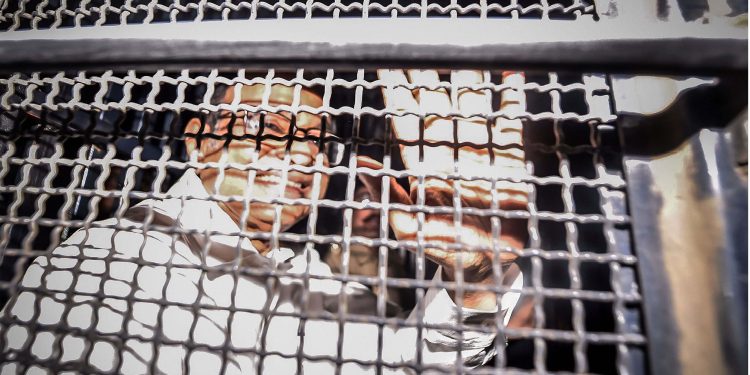New Delhi: In a setback to senior Congress leader P Chidambaram, the Supreme Court Thursday denied him anticipatory bail in the INX Media money laundering case saying granting him relief would hamper the investigation and the ED has to be given freedom to investigate the case.
The apex court, which held that this is not a fit case to grant relief to Chidambaram, said economic offences stand as a different class as they affect “economic fabric of the society” and “extraordinary power” of granting anticipatory bail has to be exercised sparingly in such cases.
Around an hour after his petition for anticipatory bail in the money laundering case was dismissed by the top court, Chidambaram preferred to unconditionally withdraw his separate plea against non-bailable warrant and subsequent remand orders of the trial court in the INX Media corruption case lodged by the CBI.
Withdrawal of plea in the corruption case paved the way for Chidambaram being sent to Tihar jail as later in the day, a Delhi court remanded him in judicial custody till September 19 in the corruption case after he was produced before it following the expiry of his 15-day CBI remand.
The trial court was informed about the apex court’s verdict in the ED case and also about the withdrawal of his plea in the CBI case.
In its judgement in the ED case, the top court said granting anticipatory bail at the stage of investigation might frustrate the probe agency in interrogating the accused, collecting useful information as also material which might have been concealed.
The SC dismissed Chidambaram’s appeal challenging the August 20 verdict of the Delhi High Court denying him anticipatory bail in the case lodged by Enforcement Directorate saying there were no grounds warranting interference with the order.
The high court had also rejected his pre-arrest bail in the corruption case lodged by CBI in which he was arrested August 21 night and has been subjected to custodial interrogation for 15 days, which comes to an end Thursday.
A bench of Justices R Banumathi and AS Bopanna Thursday said “success in such interrogation would elude if the accused knows that he is protected by the order of the court”.
“Grant of anticipatory bail, particularly in economic offences would definitely hamper the effective investigation. Having regard to the materials said to have been collected by the respondent-Enforcement Directorate and considering the stage of the investigation, we are of the view that it is not a fit case to grant anticipatory bail,” the bench said.
“Having regard to the nature of allegations and the stage of the investigation, in our view, the investigating agency has to be given sufficient freedom in the process of investigation,” the bench said in its 57-page judgement.
“Considering the facts and circumstances of the case, in our view, grant of anticipatory bail to the appellant (PC) will hamper the investigation and this is not a fit case for exercise of discretion to grant anticipatory bail to the appellant,” the court said.
However, the top court was critical of the high court judge, who had delivered the August 20 verdict, for ‘‘verbatim’’ quoting the note produced before him by ED and said it was ‘‘not a correct approach for consideration of grant/refusal of anticipatory bail.’’
Dealing with contentions of Chidambaram’s lawyers that anticipatory bail is a facet of Article 21 of Constitution, the bench said court must keep in view that a criminal offence is not just an offence against an individual, rather the larger societal interest is at stake.
The bench did not accept the contention of Chidambaram’s lawyers that ED be directed to produce transcripts of his interrogation on December 12, 2018 and January 1 and 21 of 2019 so that it could be seen whether his answers to the questions put to him were evasive or not.







































